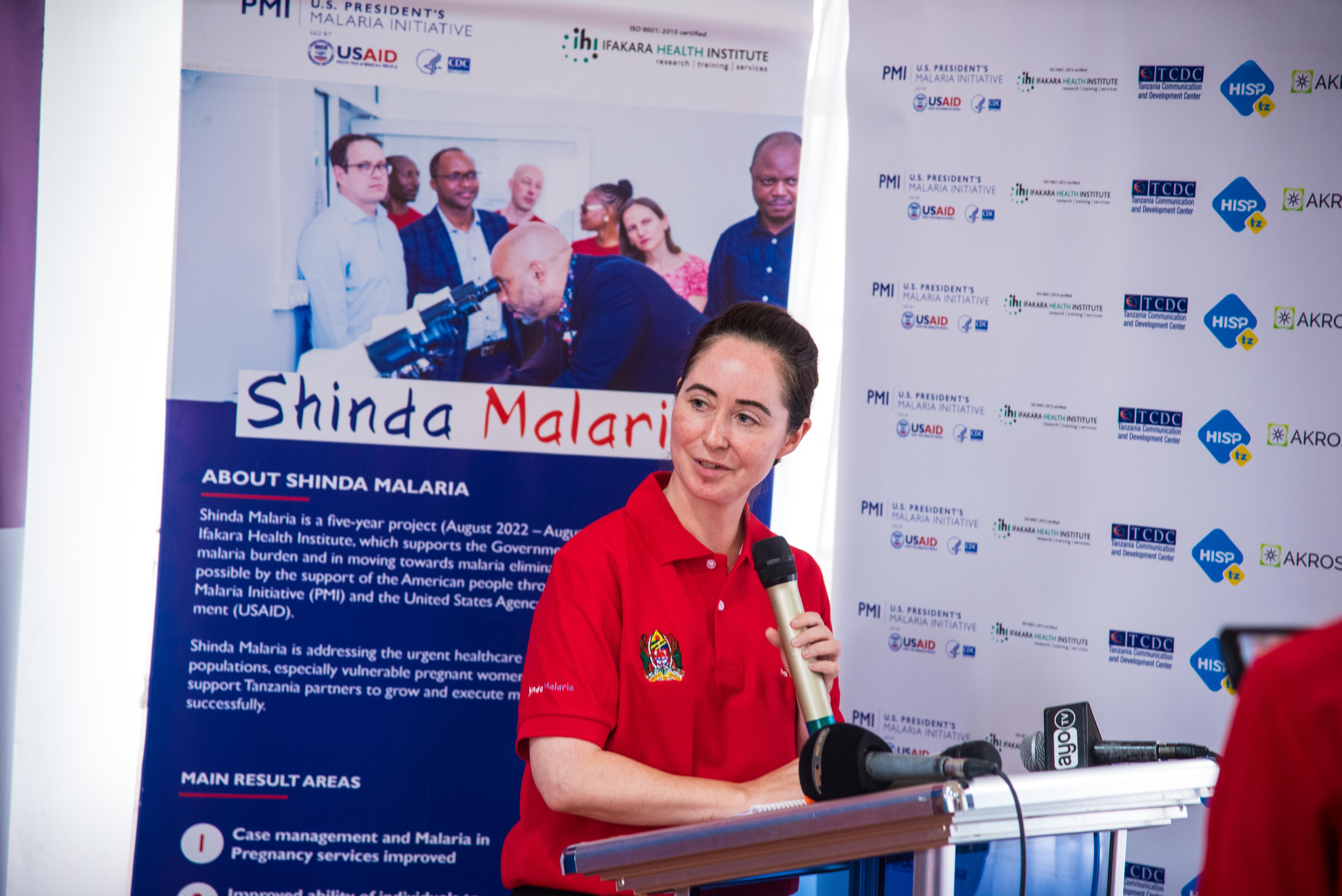
SUPPORT: Kagera receives tools worth TZS 60m from the US

Today, the Shinda Malaria project, generously funded by the American People through the United States Agency for International Development (USAID) and the US President's Malaria Initiative (PMI), distributed essential tools valued at TZS 60 million to Community-Owned Resource Personnel in the Kagera region.
Regional Administrative Secretary (RAS), Dr. Thoba Nguvila graced the event as the guest of honor, witnessing the handover were representatives from the Ministry of Health, PMI, Kagera's Regional and. Council Health Management Teams (R/CHMTs), and Ifakara Health Institute, which leads implementation of the Shinda Malaria.
Dr. Nguvila expressed his gratitude for the American government through PMI for supporting the training of CORPs and providing working tools and further explained that the initiative will contribute to saving lives of vulnerable groups in 38 selected villages in Karagwe and Kyerwa councils.
Dr. Sarah - Blythe Ballard, Resident Advisor, President's Malaria Initiative, recognizes the support of the CORPs in the fight against malaria at the community level. She said, "through this support, they will complement facility level malaria case management work, and contribute to a reduced malaria burden"
On the other hand, Ifakara's Chief Executive Director, Dr. Honorati Masanja, expressed his gratitudes to PMI for allowing Shinda Malaria to implement such a life saving initiative in the region and the government of Tanzania for granting Ifakara Health Institute a permission to assist in its mission to eliminate malaria in the region.
Shinda Malaria Chief of Party, Dr. Dunstan Bishanga pledged to continue enhancing the capacity of health care workers in the region through the project and explained that by the end of the second year of implementation the project will scale up malaria Community Case Management to seven councils within the region.
